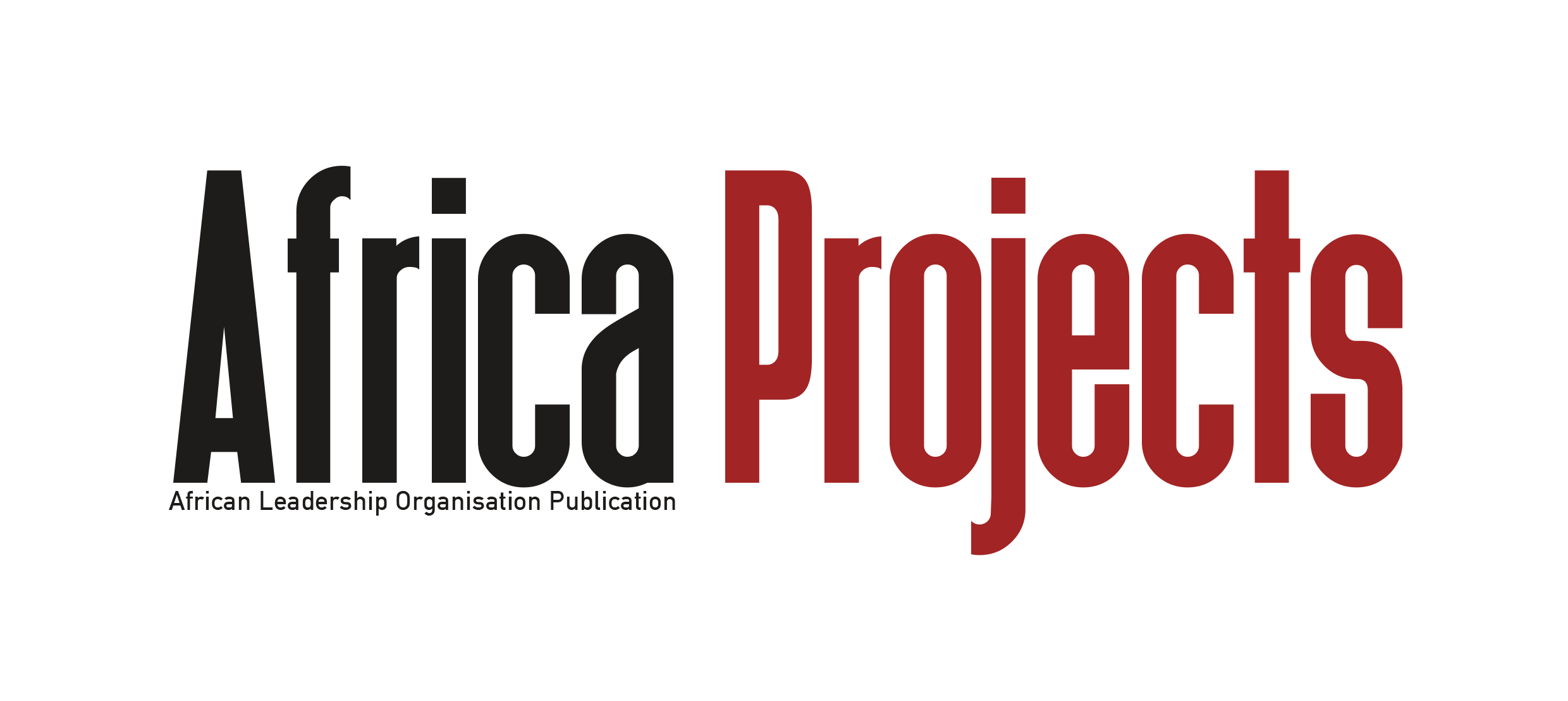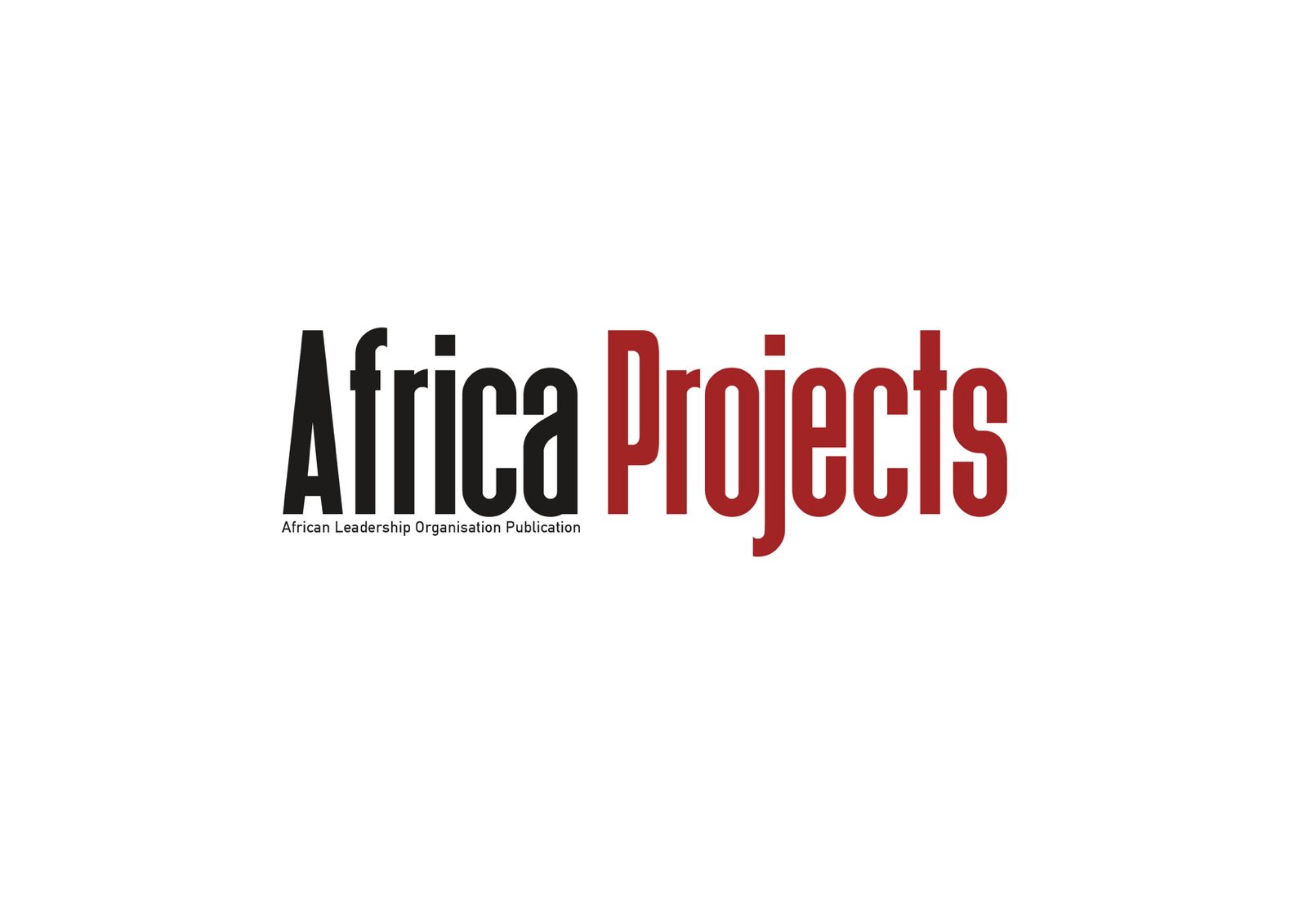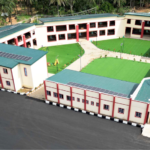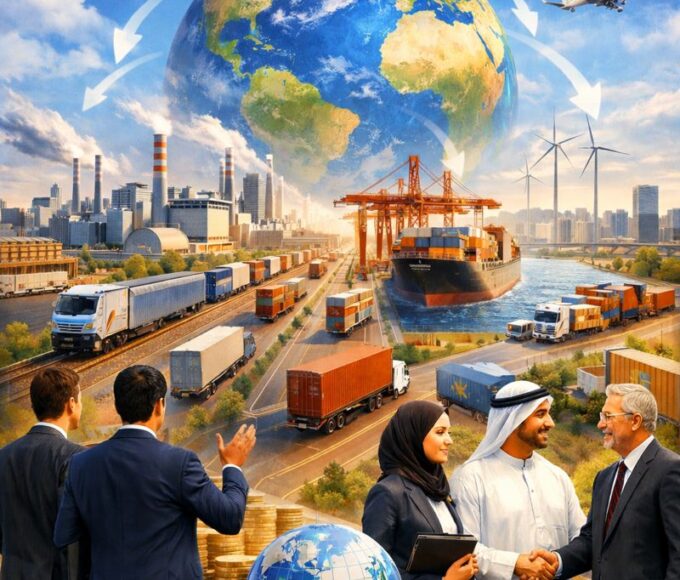- Home
- Features
- Startup Zone
- Projects
- Policies
- Shop
- Policies
- Projects
- Startup Zone
- Country Spotlight
- Analysis
- Tech
- Policies
- Projects
- Startup Zone
- Country Spotlight
- Analysis
- More
- Beyond the Kalashnikov: Africa’s Shift Toward Technology-Driven Warfare
- Afrail Express: Uniting a Continent on Rails
- AFRICA’S ENERGY CORRIDORS: CONNECTING POWER, PEOPLE, AND PROSPERITY
- Startup Lions Campus: Empowering Kenya’s Digital Generation
- L’Art de Vivre’s Le Paradis de Mahdia: Tunisia’s Model for Sustainable Luxury
- The Lobito Corridor: Rewiring Africa’s Trade Arteries Through Strategic Infrastructure
- AFRICA’S GREEN ENERGY TRANSITION: A BEACON OF HOPE FOR CLIMATE ACTION
- Dangote Refinery: Showcasing Africa’s Project Success Story
- AFRICA GREEN ECONOMY: ALL YOU NEED TO KNOW
- The Most Important Amicus Brief in the History of the World
- The Rise of Indigenous UAVs: Africa’s Drone Capabilities in Warfare and Surveillance
- AFRICA’S LARGEST OIL PRODUCERS: A COMPREHENSIVE OVERVIEW
- Beyond the Kalashnikov: Africa’s Shift Toward Technology-Driven Warfare
- Afrail Express: Uniting a Continent on Rails
- AFRICA’S ENERGY CORRIDORS: CONNECTING POWER, PEOPLE, AND PROSPERITY
- Startup Lions Campus: Empowering Kenya’s Digital Generation
- L’Art de Vivre’s Le Paradis de Mahdia: Tunisia’s Model for Sustainable Luxury
- The Lobito Corridor: Rewiring Africa’s Trade Arteries Through Strategic Infrastructure
- AFRICA’S GREEN ENERGY TRANSITION: A BEACON OF HOPE FOR CLIMATE ACTION
- Dangote Refinery: Showcasing Africa’s Project Success Story
- AFRICA GREEN ECONOMY: ALL YOU NEED TO KNOW
- The Most Important Amicus Brief in the History of the World
- The Rise of Indigenous UAVs: Africa’s Drone Capabilities in Warfare and Surveillance
- AFRICA’S LARGEST OIL PRODUCERS: A COMPREHENSIVE OVERVIEW
- Beyond the Kalashnikov: Africa’s Shift Toward Technology-Driven Warfare
- Afrail Express: Uniting a Continent on Rails
- AFRICA’S ENERGY CORRIDORS: CONNECTING POWER, PEOPLE, AND PROSPERITY
- Startup Lions Campus: Empowering Kenya’s Digital Generation
- L’Art de Vivre’s Le Paradis de Mahdia: Tunisia’s Model for Sustainable Luxury
- The Lobito Corridor: Rewiring Africa’s Trade Arteries Through Strategic Infrastructure
- Startup Zone
Top Insights
AFRICA’S GREEN ENERGY TRANSITION: A BEACON OF HOPE FOR CLIMATE ACTION
Despite the progress made, several challenges remain. Financing is a major hurdle, with the upfront costs of renewable energy infrastructure often being prohibitively expensive for many African countries.

Africa as a continent is vulnerable to the impacts of climate change, and the continent seem to be taking bold steps towards a green energy transition. With a growing population and increasing energy demands, Africa is shifting its focus from fossil fuels to renewable energy sources. This transition is not only crucial for mitigating climate change but also for promoting sustainable development and economic growth. The African continent is richly endowed with renewable energy resources, including solar, wind, hydro, and geothermal energy, making it an ideal location for a green energy revolution.
The imperative for climate action in Africa cannot be overstated. The continent is disproportionately affected by climate change, despite contributing relatively little to global greenhouse gas emissions. Rising temperatures, changing precipitation patterns, and increased frequency of extreme weather events threaten the continent’s food security, water resources, and human settlements. The African Development Bank estimates that climate change could lead to a 2-4% decline in GDP by 2040, exacerbating poverty and inequality. In this context, a transition to green energy is not only a moral imperative but also an economic necessity.
Renewable energy, particularly solar and wind power, offers a clean and sustainable solution to Africa’s energy needs. The continent’s abundant renewable energy resources, combined with declining technology costs, make it an attractive destination for investment. Africa’s renewable energy potential is vast, with several countries boasting significant solar, wind, hydro, and geothermal energy resources. For instance, Africa receives an average of 2,000-3,000 hours of sunshine per year, making it an ideal location for solar power generation. Similarly, several African countries, including Egypt, Morocco, and South Africa, have significant wind energy potential.
Several African countries are leading the way in the transition to green energy. South Africa, for example, has set ambitious renewable energy targets, aiming to generate 20% of its electricity from renewable sources by 2030. The country has already made significant strides in solar and wind energy development, with several large-scale projects underway. Morocco has also emerged as a leader in renewable energy, with a goal of generating 50% of its electricity from renewable sources by 2030. The country’s flagship project, the Noor-Ouarzazate solar complex, is one of the largest solar farms in the world. Kenya has made significant progress in geothermal energy development, with the Olkaria Geothermal Complex being one of the largest in the world.
WHY THE WEST WANTS GREEN TRANSITION FOR AFRICA
The West’s interest in Africa’s green energy transition is driven by a combination of strategic, economic, and environmental factors some of which include:
- Access to new markets: Africa’s growing energy demand and green energy transition create new market opportunities for Western companies to invest in, supply equipment, and provide services.
- Diversification of energy sources: Western countries are looking to diversify their energy sources and reduce dependence on fossil fuels. Africa’s renewable energy potential offers an attractive alternative.
- Carbon offsetting and emissions reduction: Western countries can invest in African green energy projects to offset their own carbon emissions and meet their climate change mitigation commitments.
- Energy security and geopolitics: Western countries are interested in ensuring energy security and stability in Africa, which can impact global energy markets and geopolitics.
- Economic development and poverty reduction: Western countries see Africa’s green energy transition as an opportunity to promote economic development, reduce poverty, and improve living standards.
- Technological innovation and transfer: Western companies can transfer their green energy technologies to Africa, promoting innovation and knowledge sharing.
- Compliance with global climate agreements: Western countries are committed to reducing greenhouse gas emissions under global climate agreements, such as the Paris Agreement. Investing in Africa’s green energy transition helps them meet these commitments.
WHAT CAN AFRICA LEVERAGE
Africa can gain numerous benefits from partnering with Western countries and organizations to transition to green energy:
Access to financing: Western countries and organizations can provide significant financing for green energy projects, helping Africa overcome the upfront costs of transitioning to renewable energy.
Technology transfer: Western companies can transfer their green energy technologies to Africa, promoting innovation and knowledge sharing.
Capacity building: Western organizations can provide training and capacity-building programs for African professionals, helping to develop the skills needed to maintain and operate green energy infrastructure.
Improved energy access: Green energy projects can provide energy access to remote and underserved communities, promoting energy poverty reduction and improved health outcomes.
Economic growth and job creation: The green energy sector can create thousands of jobs in manufacturing, installation, and maintenance, contributing to economic growth and development.
Reduced greenhouse gas emissions: A transition to green energy can significantly reduce Africa’s greenhouse gas emissions, helping to mitigate the impacts of climate change.
Improved energy security: Green energy can reduce Africa’s reliance on imported fossil fuels, improving energy security and reducing the impact of price volatility.
Attracting investment and funding: A green energy transition can attract investment and funding from international organizations, donors, and private sector investors.
Interestingly Africa’s gains from partnering with Western countries and organizations on green energy include:
– The African Development Bank’s (AfDB) New Deal on Energy for Africa, which has mobilized over $20 billion in investments for green energy projects across the continent.
– The European Union’s (EU) Africa-Europe Alliance for Sustainable Energy, which has committed to investing €4.5 billion in green energy projects in Africa by 2020.
– The United States’ Power Africa initiative, which has mobilized over $50 billion in investments for green energy projects in sub-Saharan Africa.
– The Green Climate Fund’s (GCF) investments in African green energy projects, such as solar and wind farms, and energy efficiency initiatives, which have mobilized over $5 billion in funding.
Despite the progress made, several challenges remain. Financing is a major hurdle, with the upfront costs of renewable energy infrastructure often being prohibitively expensive for many African countries. Infrastructure is another challenge, with Africa’s energy infrastructure often being inadequate, making it difficult to integrate renewable energy sources into the grid. Weak policy and regulatory frameworks can also hinder the development of renewable energy projects. However, these challenges also present opportunities for innovation and investment. The renewable energy sector has the potential to create thousands of jobs in manufacturing, installation, and maintenance, contributing to economic growth and development.
In conclusion, Africa’s green energy transition is a beacon of hope for climate action. With its abundant renewable energy resources, declining technology costs, and growing energy demands, Africa is poised to become a leader in the global transition to a low-carbon economy. While challenges remain, the opportunities for economic growth, job creation, and improved energy access make the transition to green energy a compelling imperative for Africa’s future. As the continent continues on its path towards a green energy revolution, it is essential that policymakers, investors, and civil society work together to overcome the challenges and harness the opportunities presented by this transition.
Recent Posts
Related Articles
Cutting-Edge Environmental Conservation Projects and Their Champions
Environmental conservation has entered a decisive era. As climate change accelerates, biodiversity...
ByafricaprojectJanuary 28, 2026Clean Water Access Projects Improving Lives in Underserved Regions
Access to clean and reliable water remains one of Africa’s most pressing...
ByafricaprojectJanuary 19, 2026Industrial Corridors Attracting Global Investors
Across Africa, industrial corridors are emerging as strategic economic arteries driving industrialization,...
ByafricaprojectJanuary 16, 2026The Engineers Behind Africa’s Tallest and Most Iconic Towers
Across Africa, the rise of tall and iconic towers is reshaping skylines...
ByafricaprojectJanuary 15, 2026












